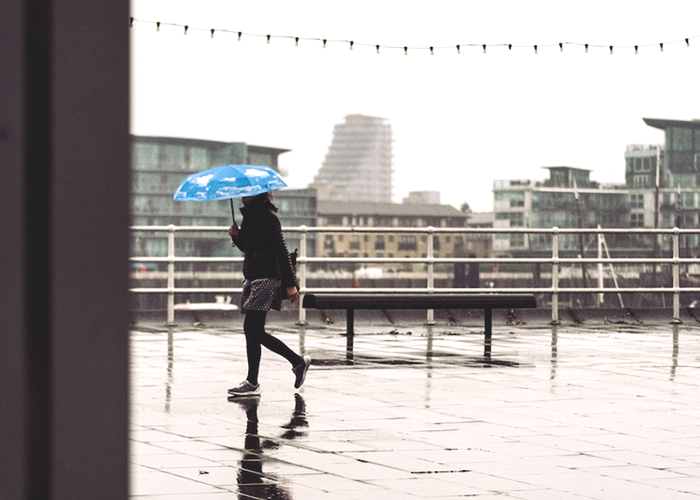4 Things Hurricane Irma Taught Me About Financial Safety

Time and time again, I have read on this site the importance of having an emergency or “rainy day” fund. How ironic that it took a literal catastrophic rainy emergency to realize the importance of such a fund.
I have experienced my fair share of hurricanes in the sixteen years that I have lived in Miami, but nothing in recent history had compared to the chaos that the Category 5 Hurricane Irma ravaged throughout my community. The inability to go outside my home for several days gave me much time to think about my finances, and the following lessons are what I learned.
1. Preparations are expensive.
Although Florida was protected against price gouging (i.e. the unlawful practice of charging exorbitant prices for essentials during a time of crisis, like $18 packs of water bottles), purchasing the necessary items to ride out a storm took a significant dent in my budget. The price of stocking up on sandbags, non-perishable and ready to eat food, beverages, candles, and flashlights quickly surged into the hundreds. I was confronted with entire rows of empty shelves in Target, Publix, and Whole Foods as panic-stricken families loaded their carts, so it was difficult to compare prices on the few items that remained. Next time around, I hope to have a hurricane kit ready in advance, so I would only have to purchase a few items when a storm arrives.
2. A week without working can be a legitimate source of concern.
Something that is not discussed enough during a natural disaster is the lost wages. Two days before the hurricane hit Miami, workplaces in Miami began closing down, and most did not reopen until a week after the storm passed. For those living paycheck-to-paycheck, the lost wages from not working for several days can result in a financial panic. In my county alone, half a million people live below the poverty line, and the loss of hourly wages was a devastating blow atop the physical destruction outside.
I work from home half of the week, and without electricity, I could not perform my job for various days. I tried to find a nearby café to get Wi-Fi, but nothing was open because the generators were being distributed to serve hospitals and supermarkets. Fortunately, my workplace paid for my lost hours of productivity, but many families in my neighborhood were not so fortunate.
3. Hurricanes affect not only wallets but mental health as well.
In an emergency, it is stressful to wonder how your friends, extended family, and coworkers are faring, an anguish made particularly worse when you are locked inside the dark, with wooden boards drilled into every window to prevent them from shattering. My mother grappled with nerves and apprehension — in part fueled by the swirling of fake news, such as Irma becoming a Category 6 hurricane — and our lack of electricity and air conditioning made my younger brother easily irritable and tense. I hope that better planning regarding methods of entertainment can reduce such heightened emotions in my home during the next storm, particularly through the use of games, books, and small battery-powered fans.
4. Listen to the cliché advice, please.
It was unfortunate that it took a storm that had a magnitude of Irma to get me to take a second look at my finances. I was lucky in many ways that I did not have to face some common expenses. For instance, I didn’t have to spend money on gas for my car because I do not own one. I was also fortunate that I did not live in a mandatory evacuation zone, which would have resulted in expenses for travel and lodging.
As simple as this sounds, preparation is key to weathering the storms life brings — both physical and mental. In retrospect, I wish I would have had a dedicated fund to make the purchase of the preparatory items easier, as it would have decreased a significant amount of stress we faced. It is easier to weather a storm if you do not have to choose between purchasing more candles or buying extra food.
My final words of advice will be these: Please prepare your home and finances before a natural disaster strikes, keep a positive outlook during the storm, and offer a helping hand to those in need when the danger has passed. Money is important, yes, but having a generous attitude and a giving heart are priceless.
Julieta Rodrigo is a recent college graduate, and has jobs in a software corporation and a non-profit that teaches students financial literacy. She has lived in Buenos Aires, Miami, and New York.
Image via Unsplash

